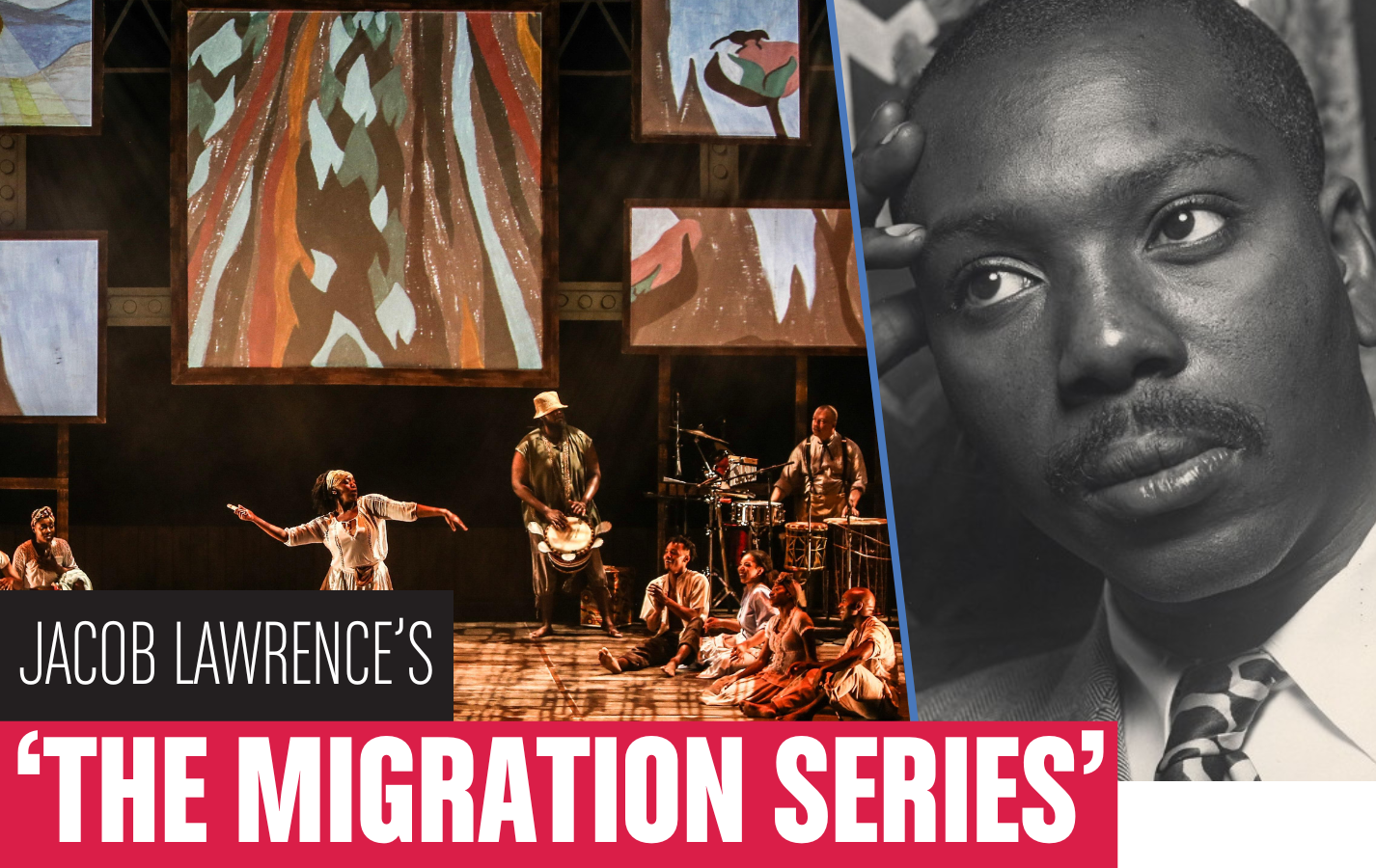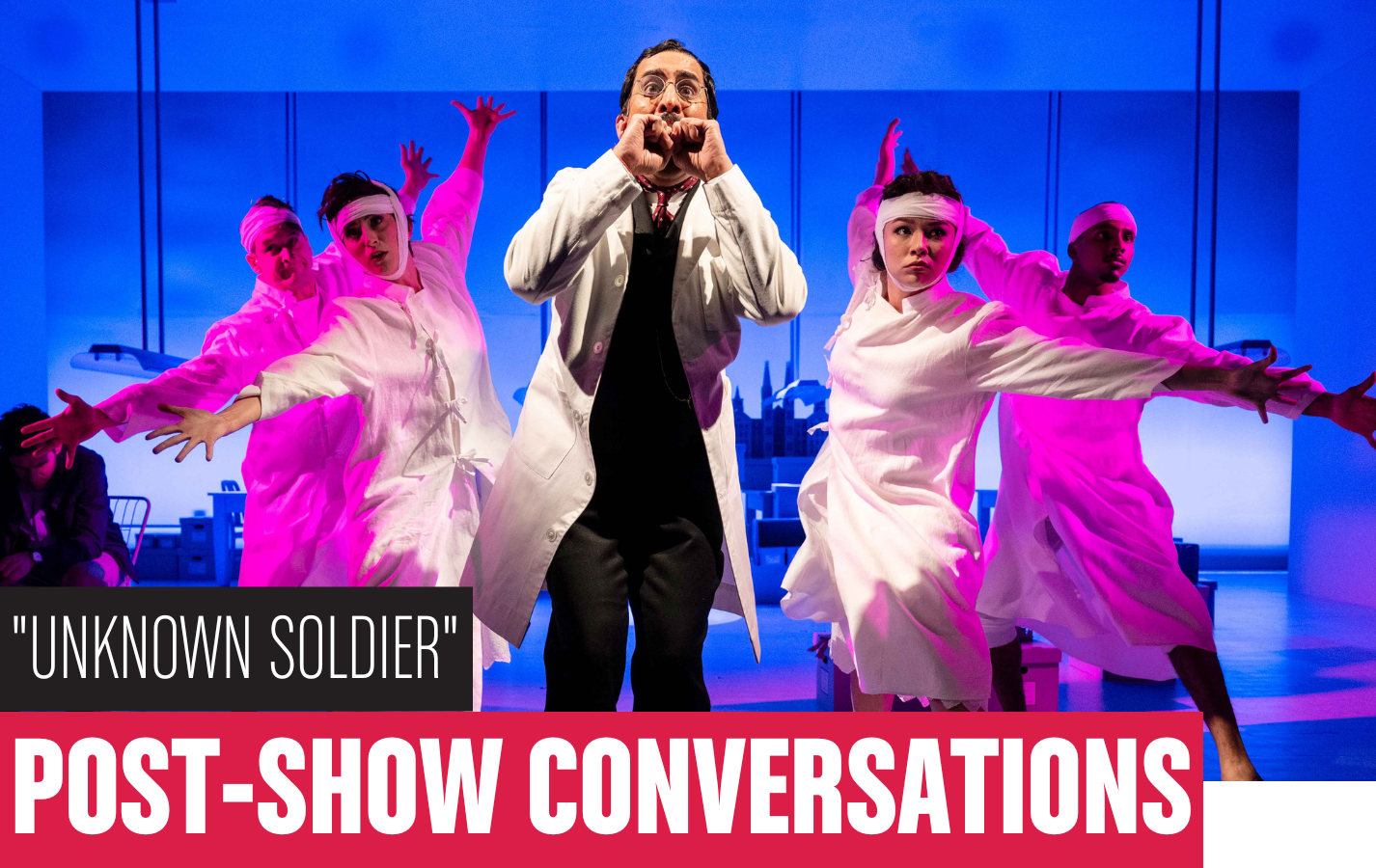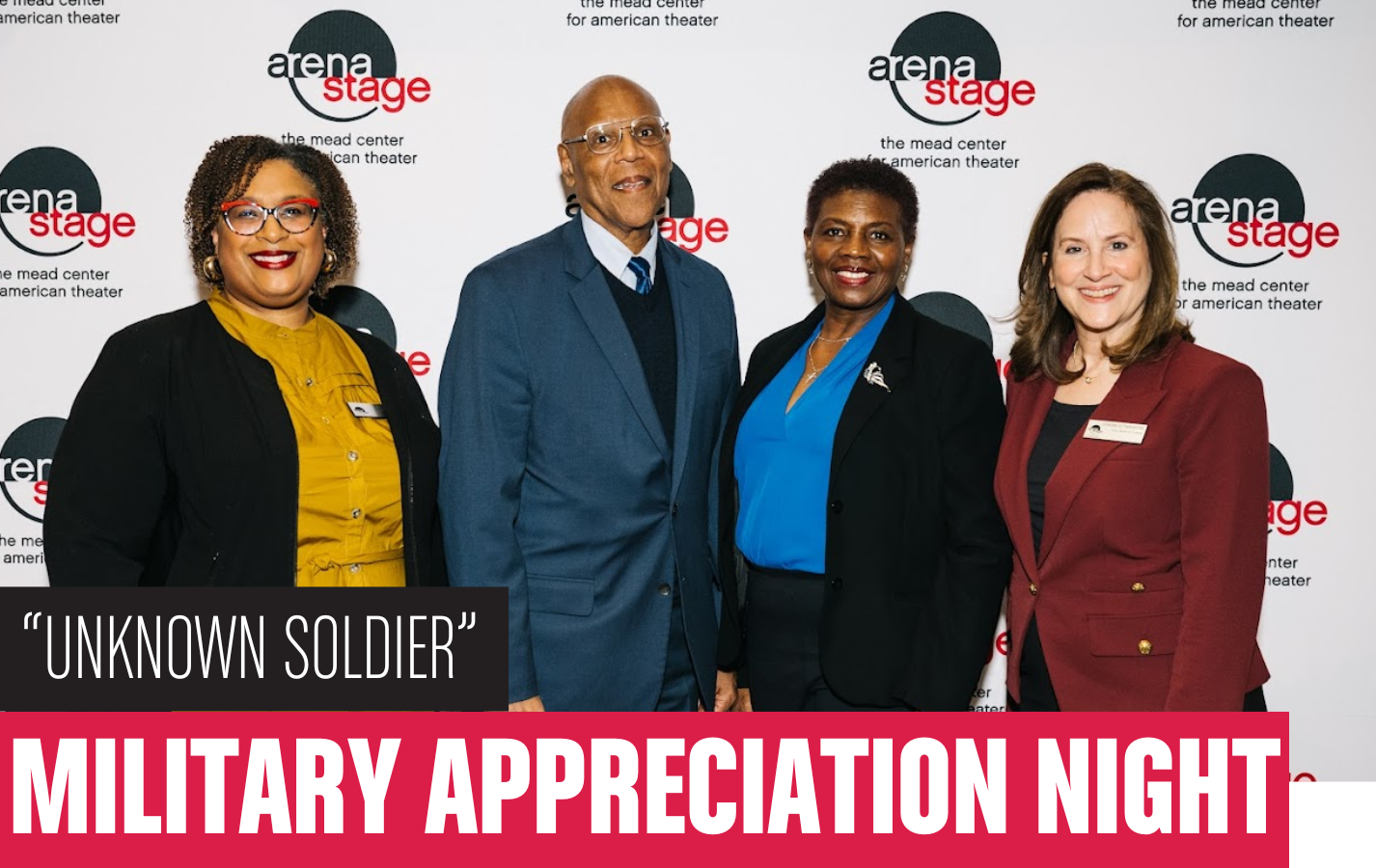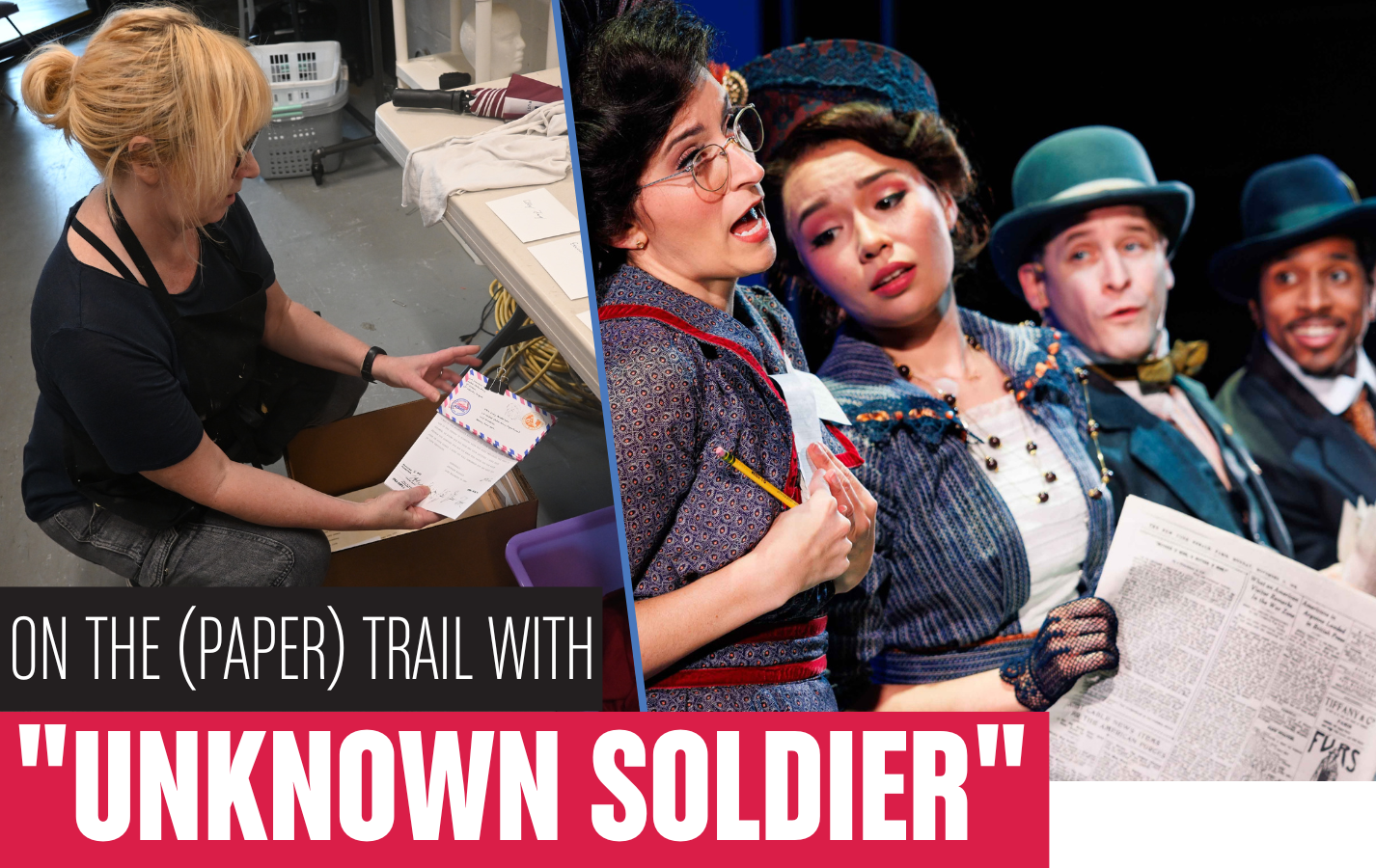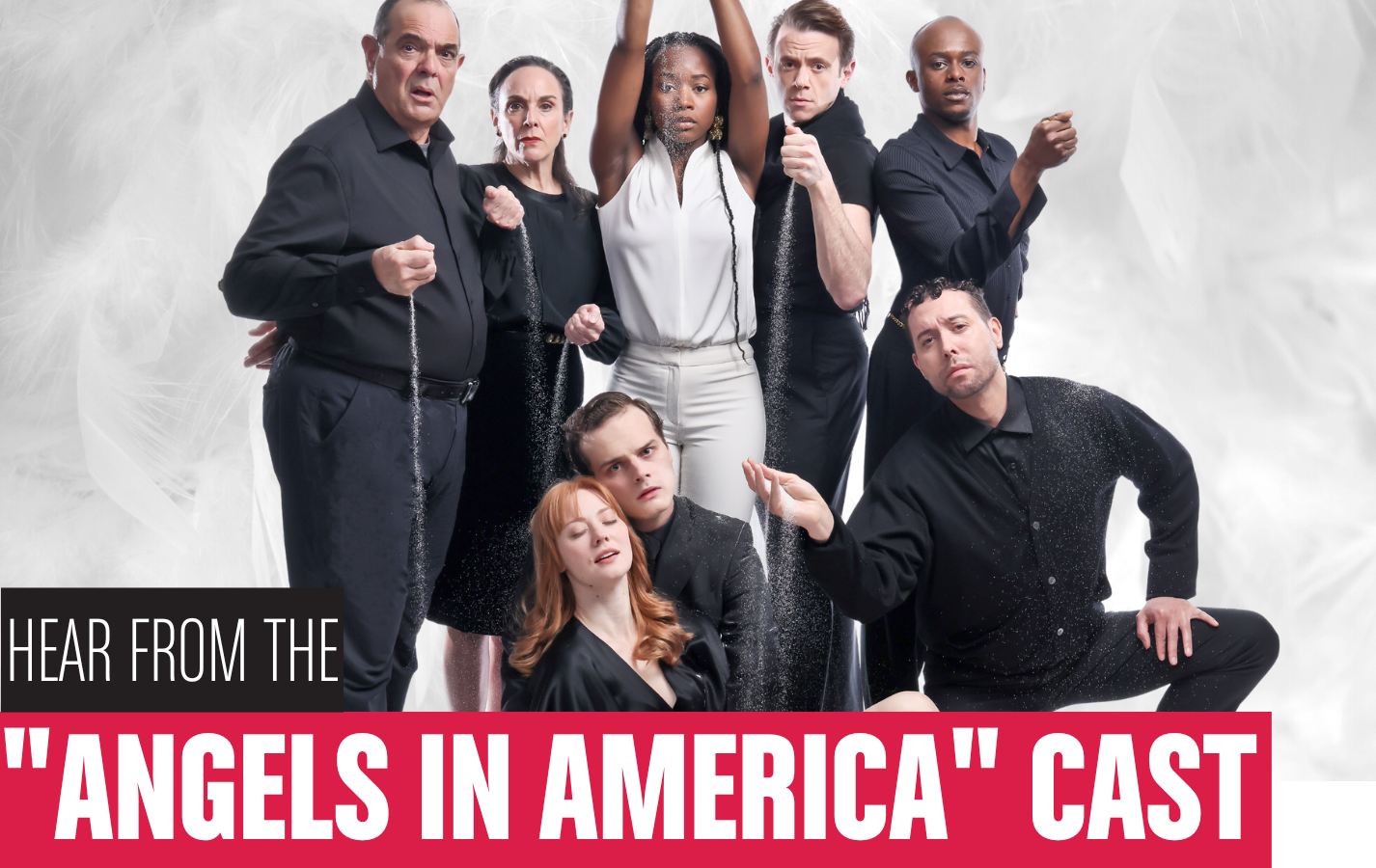
Cast of “Angels in America” Photo by Tony Powell.
We sat down with some of the cast of Angels in America, Part One: Millennium Approaches during rehearsal to discuss the power of this modern American classic. The video below gives you a glimpse into their views on this great American epic, but we wanted to give you an even deeper look into their minds!
Can you describe “Angels in America, Part One: Millennium Approaches” in 3 words?
Nick Westrate (Prior Walter): Universal, Queer, and Molecular.
Susan Rome (Hannah Pitt): Ooo yeah, molecular. Mine are Epic, Funny, and Moving as Hell!
John Austin (Joe Pitt): Love, Heartbreak, Resurrection.
Edward Gero (Roy Cohn): Theatrical, Denial, Acceptance.
Billie Krishawn (The Angel): Well we just saw the design presentation so I feel like these are half their words! Love, Heartbreak, and Life-Despite-of-Death.
Deborah Ann Woll (Harper Pitt): Love, obviously, so maybe Connection…branching off from that. History. Community. So much of this is about where community supports and where it doesn’t. And I think it’s a lesson we keep learning, or not learning, over and over again. Memorial is a beautiful word the designers brought to the table.
Why is “Angels in America” still relevant in 2023?
Nick: I think Angels in America is still relevant in 2023 because we’re watching the seeds of Reaganism, Cohn-ism, Americanism, grow into such terrifying fruition today. And, you know, we’ve all been obsessed with the idea of the multiverse, and it feels like these things are still happening. History in America is…the past is always very present. It’s always happening at once, at this moment. And I think this play really speaks to that.
Susan: For me, just because there’s so much anti-queer sentiment that’s resurging and there’s so much Anti-Semistism resurging. And Jewishness and queerness are so important in this play. And also the themes of staying put and moving forward. All these characters are in a trajectory where they’re either in stasis or movement. And playwright Tony Kushner has a lot to say about all those things. I think the ideas about immigration and forced migration also make it very thematically relevant.
John: How long do we have? A timeless play like Angels in America is going to speak through time. But there’s a way in which because of the pandemic that humankind has just gone through…we as people are at a precise moment to meet this play and listen to it with newly awakened ears.
Ed: Regardless of what time it is, I think each of us have to figure out who we are, accept ourselves, and learn how to get along with other people. And there are always crises, particularly now, and how do you accept circumstances that are beyond your control. How do we show up as human beings in the face of crises? And that’s how I think the play still resonates.
Billie: It’s too easy to lose what loss felt like. And we just lost a lot of people and yet we’re moving as if we haven’t. And we have to remember.
Deborah: I mean we’re talking about a lack of accountability, things that divide us, and the things that bring us together.
Why are you excited for this particular production of “Angels in America”?
Susan: Oh my gosh that design presentation was the most epic thing I’ve ever been in! I was already excited…when this opportunity came up. It sort of felt like the pinnacle…if I never do another play I will have done Angels in America and my life, as a creative person, will be good.
Nick: I’m excited to do this production because of two words: János Szász. He’s a director whose work I’ve admired for many years. And I think Molly Smith said this to us, and it really rang true for me, that sometimes to tell such a uniquely American story you need the eye of someone from another country so we can be seen more truly. He has an x-ray vision to his work that I think will really illuminate the play in a way no one has ever seen before.
What makes “Angels in America” a modern classic?
John: Prescient ideas, they define the times, they spoke to the times, and they extend us forward. They help us grow as human beings.
Ed: Great language, contemporary characters…these people are everywhere. They’re our friends, They’re our family, they’re us. But the language and the depth and the insight that Kushner brings us speaks right to the moment.
Why should D.C. audiences see this production?
Billie: Because it matters. Especially if you think Angels in America is not relevant anymore. Because it’s never not been relevant. And public pain should not be the only reason people take notice.
Deborah: Specifically for D.C. because this is where change happens. This is a place where, Molly Smith said, we come to learn and explore what it is to be American. And Angels in America is an American play in so many ways.
This epic story plays from March 24 through April 23 in the Fichandler Stage. We truly cannot wait to share it with you; tickets are on sale now.

